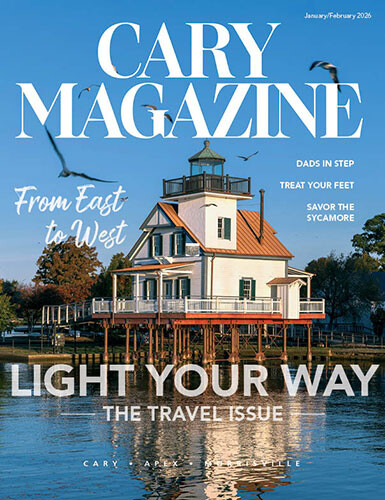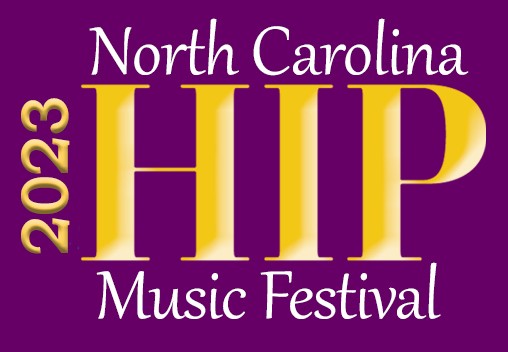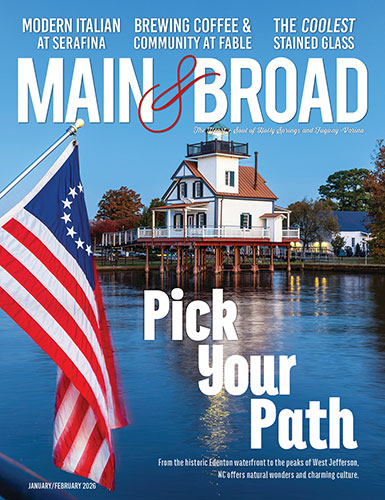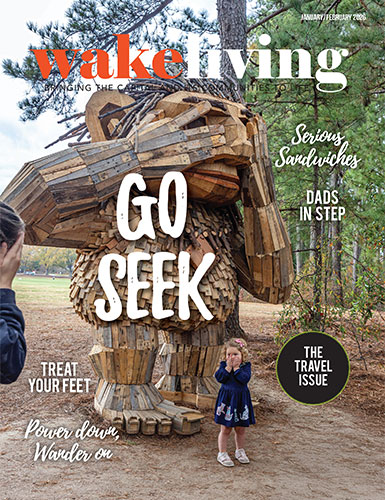The North Carolina HIP Music Festival, hosted by the Mallarmé Chamber Players, is right around the corner! This unique lineup of concerts will feature Renaissance, Baroque, and Classical era music performed on period instruments with historical performance practices.
The HIP Festival will showcase over 60 local musicians from eight different organizations in 17 events. Of particular interest to the Cary audience will be the Might, Magnificence, and Jubilation concert on Feb. 19 at 4 p.m. at the First United Methodist Church of Cary.
To learn a little more about HIP Fest, we spoke a bit more with Rousso, the artistic director at Mallarmé Music and one of the festival’s founders.
Introduce yourself!
For most of my career, I have been a modern violist, playing in orchestras, ballets, and operas in the area and spent seven years as Director of Education for the NC Symphony. When I became the artistic director of Mallarmé in 2008, I decided I would learn to play the baroque viola, which involved having a different instrument and bow. Through artist grants I was able to subsidize the purchase of the equipment and attendance at a few of the summer institutes for early music like Oberlin, Amherst, and Tafelmusik in Toronto.
Tell us more about the HIP Festival!
The NC HIP (Historically Informed Performance) Music Festival was established in 2013 by me and a handful of other North Carolina-based musicians who specialized in period instrument performance and pedagogy: Brent Wissick (UNC-Chapel Hill), Elaine Funaro (Alienor), Beverly Biggs (Baroque & Beyond), Stephanie Vial (The Vivaldi Project), and Barbara Krumdieck (North Carolina Baroque Orchestra).
The HIP Festival gives listeners the opportunity to experience the music close to how the audiences of the time that the music was composed might have heard it. With instruments that are either original or copies of originals with softer timbres, a pitch that is lower than modern pitch, and distinct styles that are learned from reading treatises and handed down over the years, a listener can recognize the evolution of early music to modern times.
What inspired HIP’s creation?
I never realized how different the approach, the effect, and the physical production of sound would be, and I have learned a lot in the last 12 years! I also discovered that there was a small but devoted audience of local folks who really loved early music of the Renaissance, Medieval, and Baroque periods performed on period instruments. Many of the audience were also amateur players of recorder and viol da gamba.
Because of the confluence of these players and a kind of revived interest in early music nationally, the HIP Festival was born. Originally a week long, it has morphed into a monthlong festival, every other year, in the Triangle. There are not concerts every day, but there are enough events that get fans really excited about the festival. It is truly a grassroots effort, where Mallarmé Music spearheads the organization and the marketing of the festival, but each ensemble and individual artist provides the content and the production of their own events.
What are some of this year’s highlights?
Some of the highlights of this year’s festival include the opening concerts Biber Bowl Revisited, Feb. 4 (Raleigh) and 5 (Durham) with nine Mallarmé artists performing the sublime music of Heinrich Ignaz Franz Biber; a lecture/demo about the Black Fiddlers of Monticello (Feb. 18, Durham), a performance of all the J.S. Bach violin partitas and sonatas by Nicholas DiEugenio (Feb. 24, Chapel Hill), and two baroque dance workshops on Feb. 26, led by Paige Whitley-Bauguess, co-presented with ADF at the Scripps studio in Durham.
More information about the HIP Festival can be found at hipmusicfestival.org, including a schedule of events. An all-festival HIPster pass may be purchased for $100, or each performance can also be attended singularly with a ticket or donation at the door.






